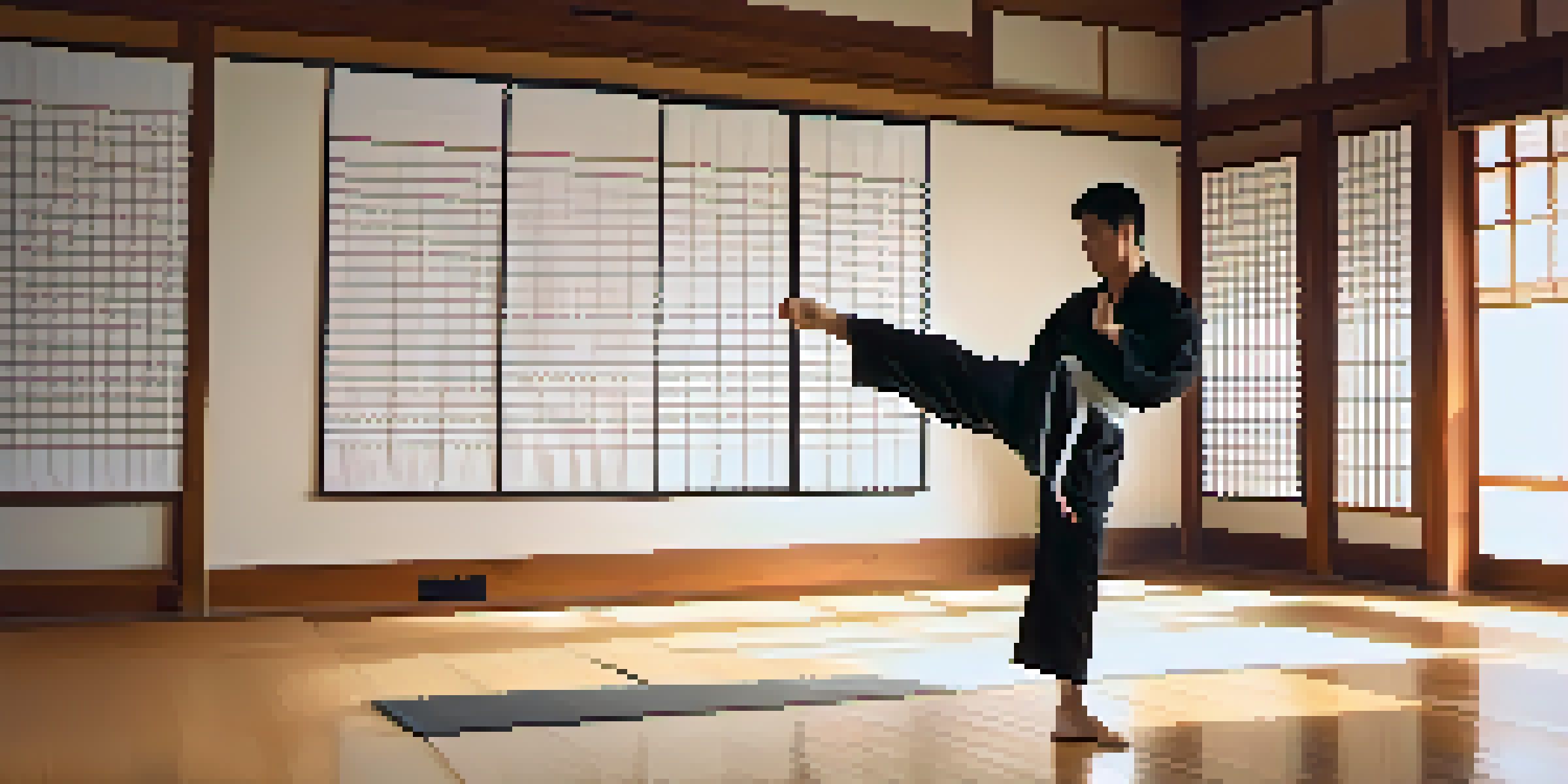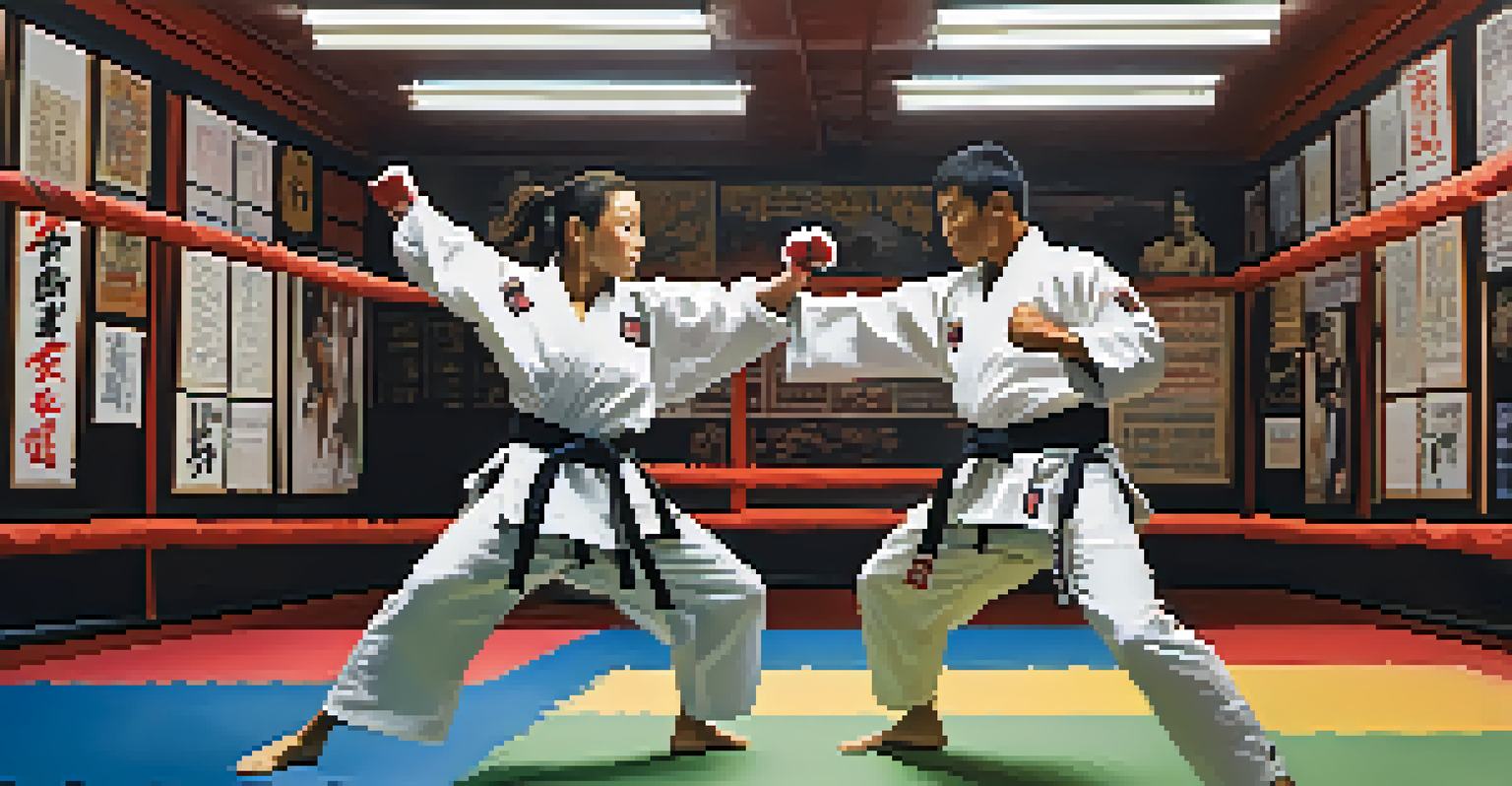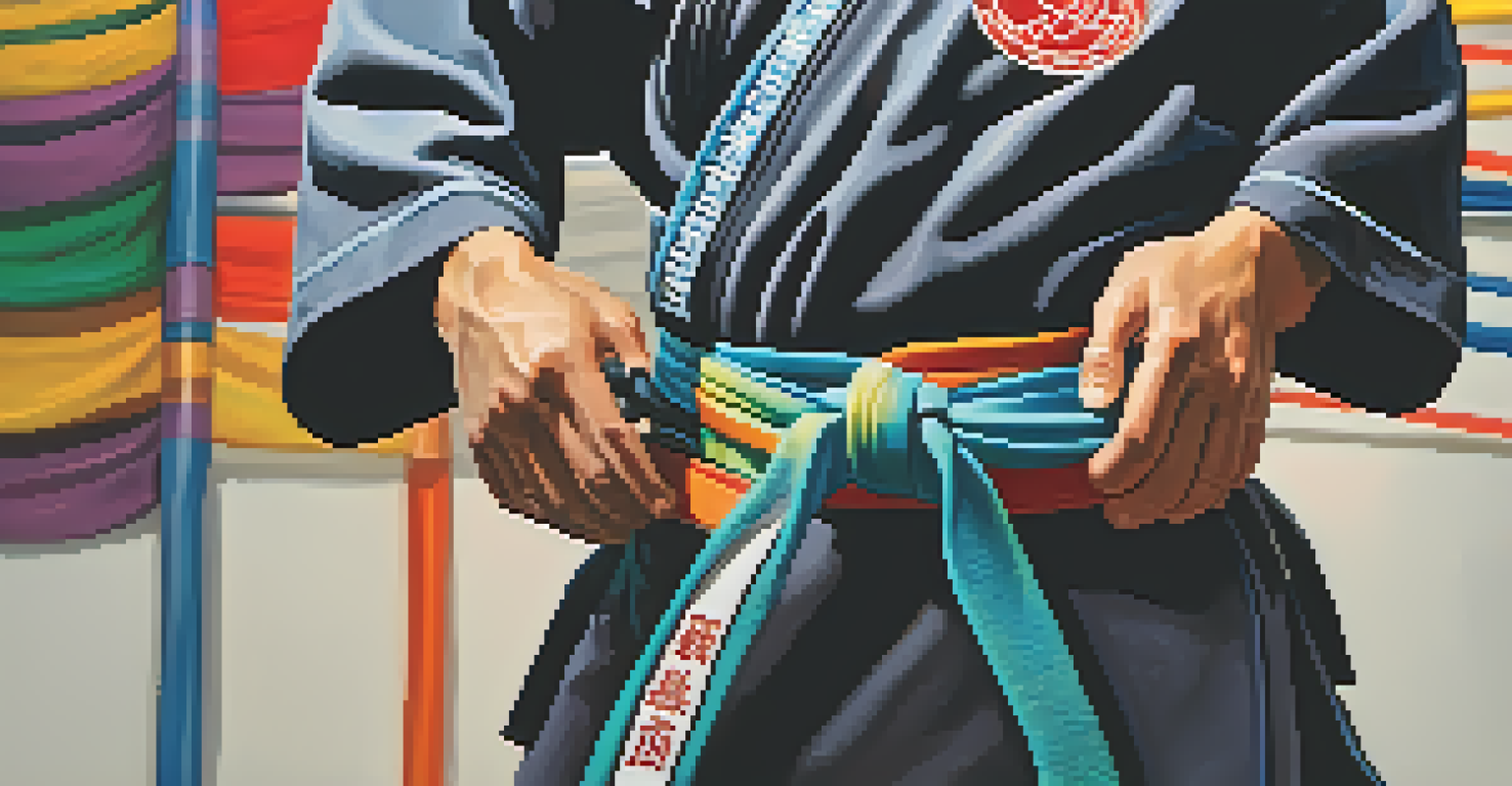How Martial Arts Cultivates Adaptability in Daily Life Challenges

Understanding Adaptability: A Key Life Skill
Adaptability is the ability to adjust to new conditions, and it's crucial for overcoming life's challenges. Whether you're facing unexpected changes at work or personal hurdles, being adaptable helps you navigate through them. Martial arts trains practitioners to respond effectively to unpredictable situations, making it an excellent practice for cultivating this skill.
The measure of intelligence is the ability to change.
In martial arts, students learn to think on their feet and make quick decisions during sparring sessions. This mirrors real-life scenarios where we often need to pivot and change our approach. For instance, a student who faces a sudden change in a sparring partner's strategy learns to adapt quickly, which builds confidence in their ability to handle surprises.
Moreover, adaptability isn't just about reacting; it's also about proactive adjustments. The discipline learned in martial arts encourages individuals to anticipate challenges and prepare for them in advance. This holistic approach to adaptability can greatly enhance one's resilience in everyday life.
Embracing Change Through Martial Arts Training
Martial arts training is inherently about embracing change. From learning new techniques to facing different opponents, every session offers an opportunity to adapt and grow. This constant exposure to change helps students become more comfortable with uncertainty and variability in their lives.

For example, a martial artist may find themselves learning a new form or style that requires a shift in mindset. This experience teaches them that change can be positive and rewarding, ultimately leading to personal growth. As they embrace these new techniques, they begin to see how change can lead to improvement in other areas of their lives.
Adaptability is Essential for Growth
Martial arts training cultivates the ability to adjust to new challenges, enhancing resilience in everyday life.
Additionally, martial arts often involve teamwork and partner drills, where individuals must adapt to each other's styles and strengths. This collaboration fosters a sense of community and encourages learners to be flexible in their interactions, which is essential when dealing with diverse personalities in daily life.
Building Confidence to Face Life's Challenges
Martial arts builds self-confidence, which is a crucial component of adaptability. As practitioners master new skills and techniques, they develop a sense of accomplishment that translates into their everyday lives. This newfound confidence empowers them to tackle challenges head-on, believing they can adapt and overcome.
It's not the strongest of the species that survive, nor the most intelligent, but the one most responsive to change.
Think of it this way: when you can confidently execute a complicated move in martial arts, facing a tough situation outside the dojo feels more manageable. That confidence acts as a buffer against the stress of uncertainty, allowing individuals to approach challenges with a positive mindset.
Moreover, martial arts teaches students to embrace failure as a learning opportunity. When they stumble in practice, they learn to get back up and try again, reinforcing the idea that setbacks are not the end, but rather a part of the journey. This lesson is invaluable in everyday life, where resilience is key to adaptability.
Enhancing Problem-Solving Skills Through Sparring
Sparring in martial arts is a dynamic environment that mirrors real-life problem-solving scenarios. Practitioners must quickly assess their opponent’s moves and devise strategies to counteract them. This constant engagement sharpens their critical thinking and creativity, essential traits for adaptability.
For instance, when faced with an opponent who employs an unexpected technique, a martial artist must quickly evaluate alternatives and implement a new strategy. This kind of quick thinking trains the brain to become more agile, improving overall problem-solving abilities in daily life.
Confidence Fuels Problem-Solving
Building self-confidence through martial arts empowers individuals to face challenges head-on and embrace failure as a learning opportunity.
Additionally, the experience of sparring fosters a mindset of experimentation. Just like in life, where not every solution works out, martial artists learn to test different approaches and find what works best for them. This trial-and-error process is foundational for developing adaptability.
Cultivating Emotional Intelligence Through Martial Arts
Martial arts isn't just about physical prowess; it also nurtures emotional intelligence. Understanding one's emotions and those of others is vital for adapting to social situations. Practitioners learn to remain calm under pressure, which is essential for making thoughtful decisions in challenging circumstances.
For example, during a heated sparring match, martial artists must manage their emotions to maintain focus and control. This practice translates into everyday interactions, where emotional awareness can help navigate conflicts or misunderstandings more effectively.
Furthermore, the camaraderie built within martial arts classes encourages empathy and respect among peers. Learning to understand different perspectives enhances interpersonal skills, making it easier to adapt to various social settings and relationships.
The Role of Mindfulness in Adaptability
Mindfulness is a core component of martial arts that contributes significantly to adaptability. By focusing on the present moment, practitioners learn to become more aware of their surroundings and internal states. This heightened awareness allows them to respond thoughtfully rather than react impulsively.
For instance, during meditation or warm-up exercises, martial artists cultivate a sense of calm and clarity. This practice helps them manage stress and anxiety, enabling them to approach challenges with a level-headed mindset. When faced with unexpected changes in life, this mindfulness can be a powerful tool for maintaining composure.
Mindfulness Enhances Emotional Control
Practicing mindfulness in martial arts helps individuals manage stress and respond thoughtfully to unexpected changes.
Moreover, the practice of mindfulness in martial arts encourages reflection on personal experiences. By taking the time to analyze past challenges, individuals can identify patterns and develop strategies for future situations. This reflective practice enhances their adaptability, empowering them to face whatever comes their way.
Translating Martial Arts Skills to Everyday Life
The skills learned in martial arts extend far beyond the dojo and can be applied to everyday life. From enhancing physical fitness to improving mental resilience, the benefits are vast. Practitioners often find themselves better equipped to handle stressors in their personal and professional lives.
For example, the discipline of regular training cultivates a strong work ethic. This dedication can lead to improved performance at work or in studies, as individuals learn to set goals and persist in achieving them. The adaptability gained in martial arts translates into a proactive approach to challenges, making obstacles feel surmountable.

Additionally, the community aspect of martial arts fosters a support network. Having a group of like-minded individuals encourages personal growth and motivates practitioners to adapt together. This sense of belonging provides a safety net, making it easier to embrace change and face life's challenges with confidence.